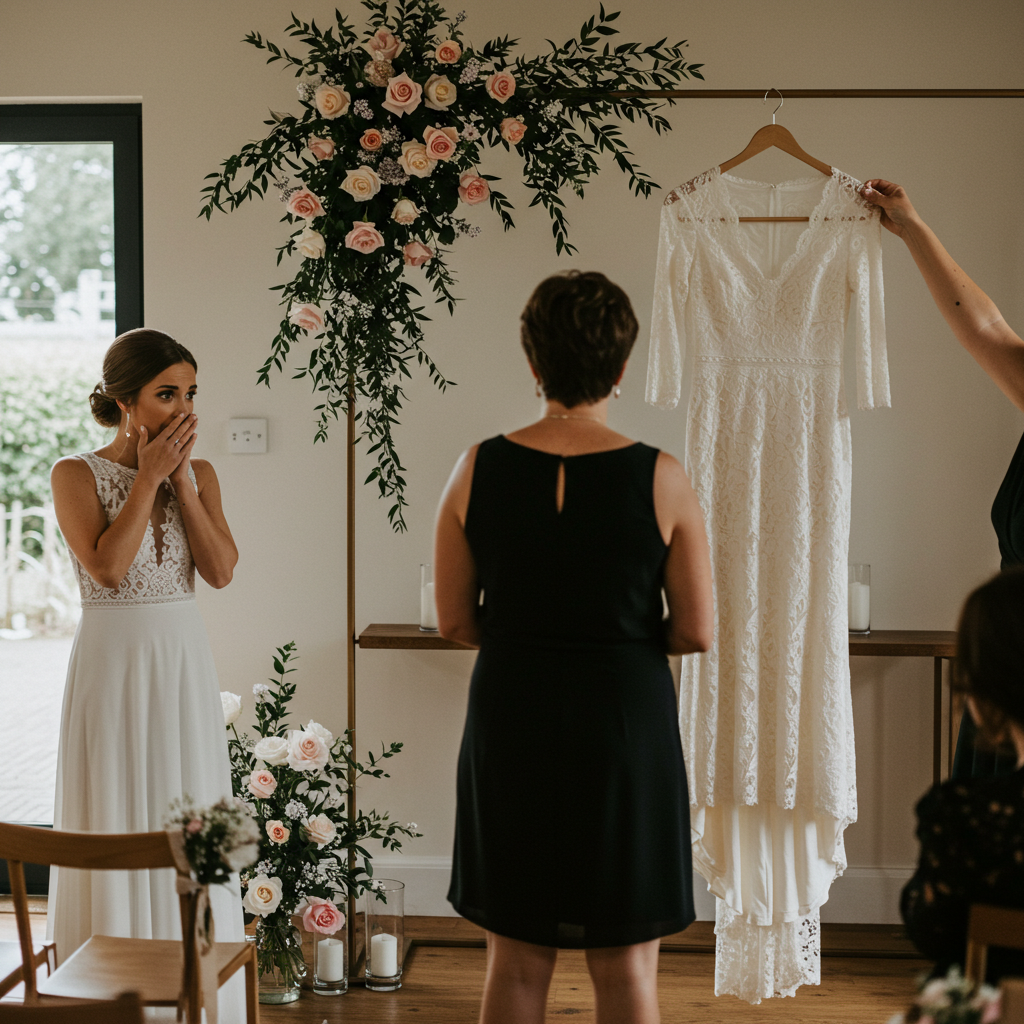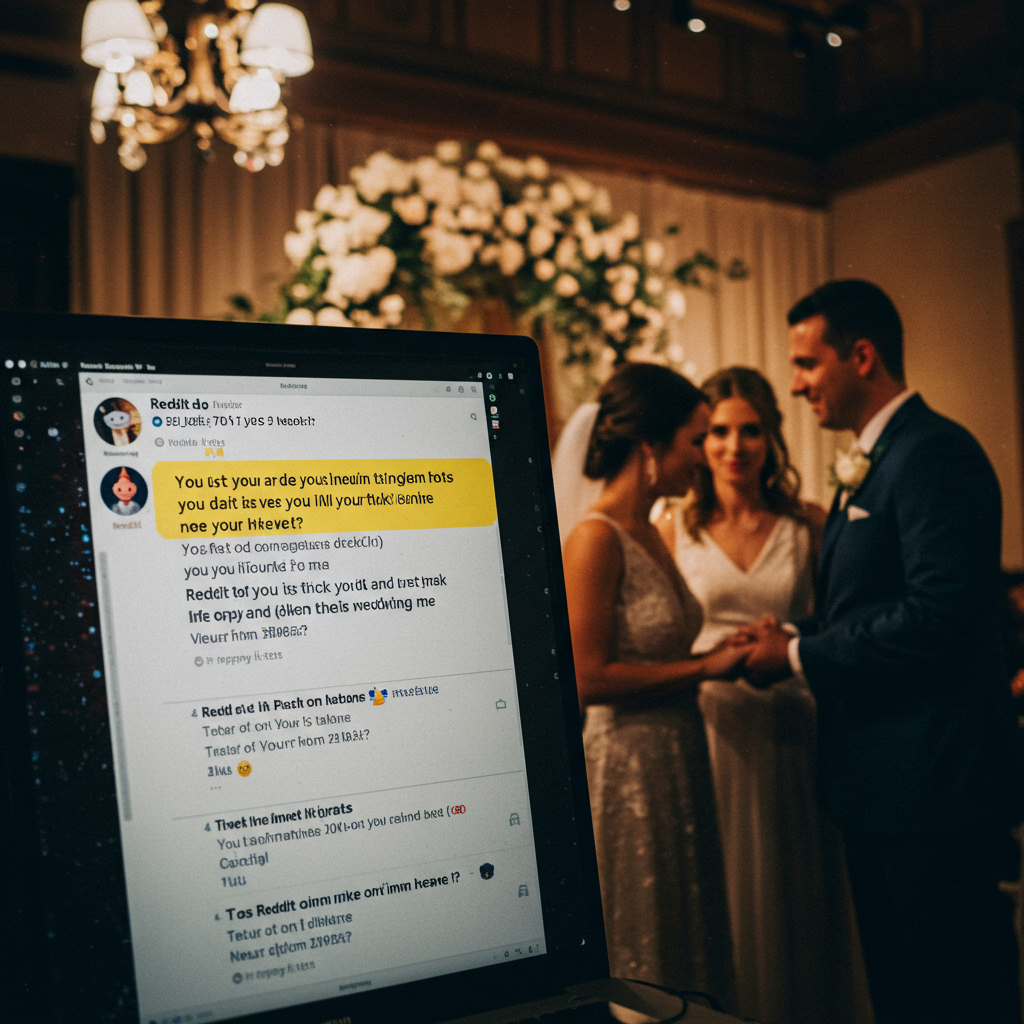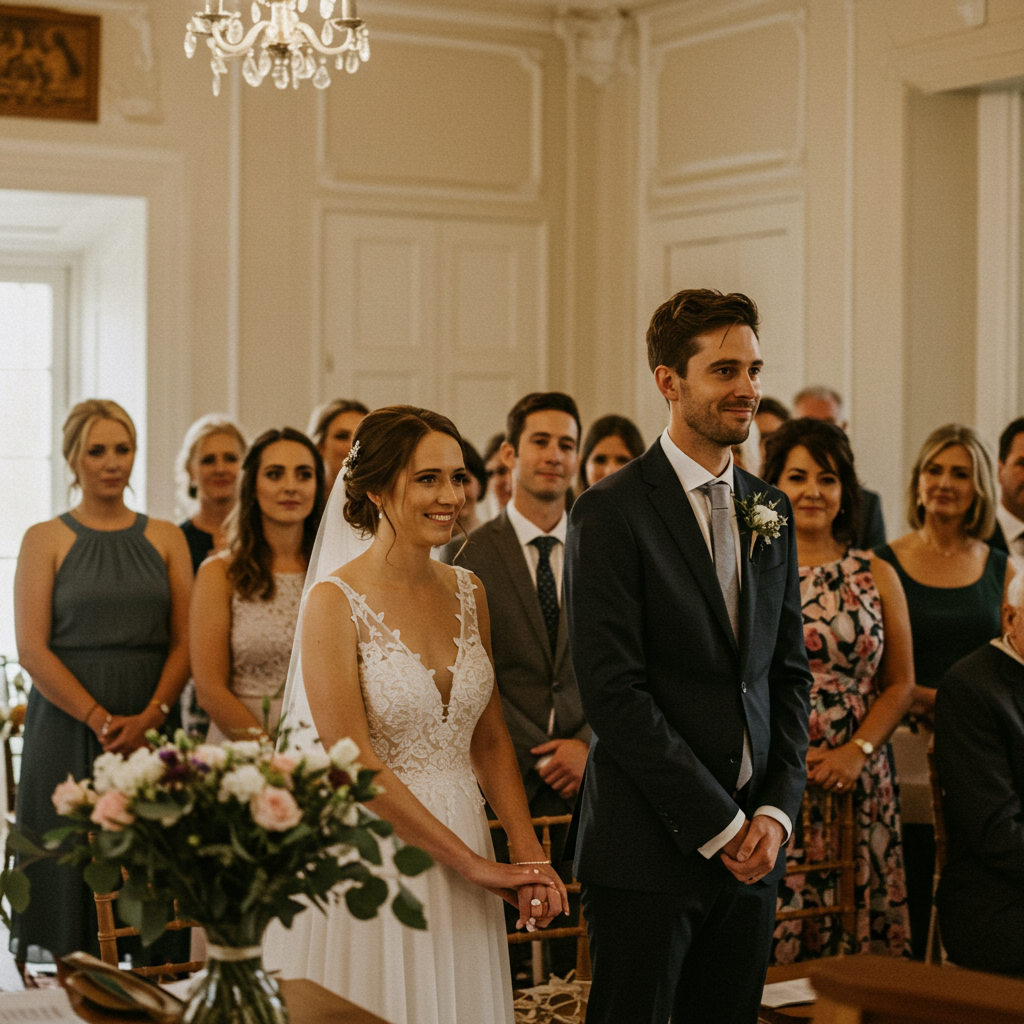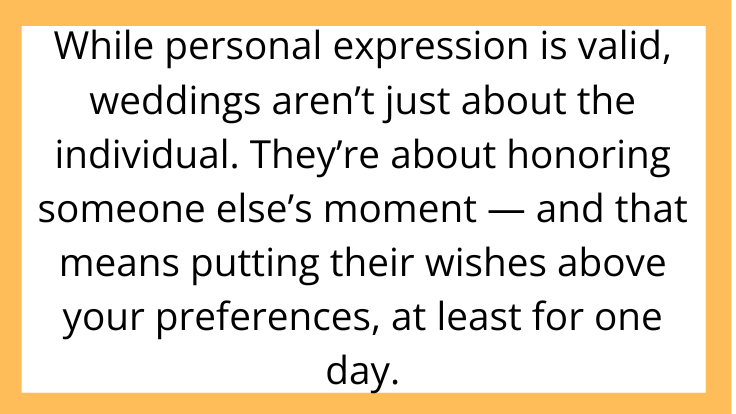AITAH for Not Letting My Brother’s Fiancée Wear White to My Wedding?
Weddings are often emotional minefields, where personal boundaries, family dynamics, and tradition collide. One recent story from r/AITAH sparked fierce debate: the original poster (OP) asked if they were wrong for telling their brother’s fiancée she couldn’t wear a white dress to OP’s wedding — a rule that most people would assume goes without saying.
But in this case, the drama went much deeper than just color coordination. Let’s explore what happened, why it hit a nerve, and what it says about boundaries, respect, and the unspoken rules of wedding etiquette.
The Setup: When White Isn’t Just a Color

The OP explained that their wedding was coming up in just a few weeks. While working with guests on what to wear, they noticed that their brother’s fiancée (let’s call her “Amy”) planned to wear a long, white lace gown to the ceremony. OP was shocked and politely reminded Amy that wearing white to someone else’s wedding — especially a full-length, bridal-looking dress — was considered inappropriate and disrespectful.
Amy, however, was unfazed. She insisted the dress was “just fashion” and accused OP of being insecure and overdramatic. The brother took Amy’s side, saying OP was making a big deal out of “just a color.” The tension escalated, and OP eventually told Amy that if she showed up in that dress, she would be asked to leave.
The question: was that going too far?
The Unspoken Rule: Don’t Compete with the Bride

There’s an age-old etiquette rule that guests shouldn’t wear white to a wedding unless the couple explicitly says otherwise. This isn’t just about fashion — it’s a cultural sign of respect. Here’s why it matters:
-
White symbolizes the bride: Traditionally, only the bride wears white, to symbolize purity and center the attention on her.
-
It’s about spotlight, not style: A guest wearing white — especially a formal or elaborate gown — can be seen as trying to steal attention.
-
Boundaries matter: Ignoring a bride’s (or couple’s) dress code is often read as ignoring their feelings and authority over their own event.
In other words, it’s not just “a color.” It’s a boundary.
Why Some People Still Push Back

Despite the tradition, some people — like Amy in this story — argue that wedding rules are outdated. Their logic usually goes something like:
-
“Fashion is personal — you can’t tell me what to wear.”
-
“It’s just a color, and I look good in white.”
-
“Rules like this are old-fashioned.”
While personal expression is valid, weddings aren’t just about the individual. They’re about honoring someone else’s moment — and that means putting their wishes above your preferences, at least for one day.
When Enforcing Boundaries Feels Harsh — But Necessary

OP’s decision to tell Amy she’d be asked to leave if she wore the dress might feel extreme to some, but boundaries don’t mean much if there are no consequences. When someone repeatedly disregards your clearly stated expectations, it’s reasonable — even healthy — to set limits.
Here’s how to enforce boundaries respectfully:
-
Stay calm, not confrontational: “I want you there, but I need you to respect this request.”
-
Be consistent: Don’t bend your rule for some people and not others.
-
Make it about the event, not the person: Emphasize the bigger picture — the couple’s wishes and the significance of the day.
Boundaries are rarely about punishment; they’re about protecting peace.
What Reddit Had to Say

Commenters on the post were overwhelmingly in support of OP. Most agreed that Amy’s insistence on wearing white — despite being told not to — was attention-seeking and disrespectful. Some even speculated that it was intentional sabotage, hinting at jealousy or competition.
Others, however, warned OP to be careful with ultimatums, especially if it risked fracturing family relationships.
The general consensus: OP was not the bad person for setting this boundary — but diplomacy and tact would go a long way in keeping the peace.
Final Thoughts: It’s About Respect, Not Rules

Weddings aren’t just about aesthetics — they’re about respect. When someone asks for something simple, like “Please don’t wear white,” it’s not just about tradition. It’s about honoring the moment, the relationship, and the emotions attached to one of the most personal days in someone’s life.
If someone can’t respect a basic request on your wedding day, the problem isn’t the color of the dress — it’s the disregard behind it.



